DAO是什麼?
Solana的DAO有什麼值得開發的項目和題材?
幸福課程
幸福教練黃老師 /
潮資訊媒體 社群編輯
DAO,全稱Decentralized Autonomous Organization,
是去中心化自治組織。
它是一種由代幣持有者治理的組織。
DAO的代幣持有者可以投票決定組織的發展方向和資金的使用方式。
DAO有許多優點,例如:
去中心化:
DAO沒有中央管理機構,
因此不受任何單一機構的控制。
透明度:
DAO的所有活動都是公開透明的,
所有代幣持有者都可以查看。
效率:
DAO的決策過程可以更快、更有效,
因為它不受官僚主義的影響。
Solana是一個高性能的區塊鏈平台,
它為DAO的發展提供了理想的環境。
Solana的低交易費用和快速交易速度
使DAO能夠以更低的成本和更高的效率運營。
以下是Solana的DAO可以開發的一些值得開發的項目和題材:
治理:
Solana的DAO可以開發新的治理工具和機制,
以提高DAO的治理效率和透明度。
例如,DAO可以開發一種新的投票系統,
允許代幣持有者對組織的決策進行更有效的投票。
資金管理:
Solana的DAO可以開發新的資金管理工具和機制,
以提高DAO資金的使用效率和安全性。
例如,DAO可以開發一種新的智能合約,
允許DAO的資金在滿足特定條件時自動釋放。
身份驗證:
Solana的DAO可以開發新的身份驗證工具和機制,
以提高DAO的安全性。
例如,DAO可以開發一種新的身份驗證系統,
允許DAO驗證代幣持有者的身份。
社交:
Solana的DAO可以開發新的社交工具和機制,
以提高DAO的凝聚力和參與度。
例如,DAO可以開發一種新的社交平台,
允許代幣持有者相互交流和合作。
以下是一些Solana上已經存在的DAO項目:
Solana Foundation:
Solana基金會是一個由Solana代幣持有者治理的非營利組織。
該基金會負責監督Solana生態系統的發展。
Saber:
Saber是一個去中心化的交易所,
允許用戶在Solana上交易加密貨幣。
Saber由一個DAO治理。
Marinade:
Marinade是一個流動性質押協議,
允許用戶在Solana上質押他們的SOL代幣。
Marinade由一個DAO治理。
這些項目只是Solana DAO生態系統的冰山一角。
隨著Solana生態系統的不斷發展,
將會有更多新的DAO項目出現。
...
...
歡迎妳/你來請我喝杯咖啡,謝謝妳/你!
https://www.buymeacoffee.com/chiachincoach
...

The future of Web 3 games: Play-to-Own (P2O)
What is Play-to-Own (P2O)?
Play-to-Own (P2O) focuses on sustainable economy. Unlike the Play-to-Earn (P2E) model where players, blinded by their transient earning mentality, focus merely on short-term benefits.
The P2O model cultivates players’ strong sense of belonging for both in-game assets and intellectual properties (IP) by lowering the gameplay threshold for new players and rewarding them continuously.
For players, there is no difference between early and late comers. Ability and skill are the factors that truly matter when it comes to yielding profits.
The traditional Play-to-Earn (P2E) model
The reason why the traditional P2E model fails to form a sustainable game economy lies in the fact that early participants are paid with the investments from later entrants. This is the part where the P2E model attracts the most criticism – early investors take it all; the late ones, mourn their loss.
The advantage of Play-to-Own (P2O) games
Play-to-Own (P2O) games don’t require high expenses in the initial stage like Play-to-Earn (P2E) games do. This advantage lowers the barrier and gives players free access to P2O games in a way that these rewards can then be reinvested back to the game in exchange for valuable in-game assets.
New players can also compete with high-level players by renting NFTs from the market without having to pour their money in the early stages of the game.
How to evaluate Web 3 games?
According to the co-founder of DeFianceCapital, ArthurOx, listed below are traits that make successful Web 3 games:
1. A healthy economy: limit opportunistic behavior, manage inflation accordingly
2. Intellectual Property (IP): allowing players to build games together
3. Game Democratization : represents community’s views, ensures that open source games are collectively censored by the community itself rather than a centralized authority
Karma Ksana, a company that pays equal attention to sustainable economy
Karma Ksana is centered on a decentralized community. Similar to the P2O model, Karma Ksana focuses on creating a sustainable game economy, significantly reducing the cost of entering games for its players.
The first game, Karma Genesis, sets its goal on modularizing in-game art, model and basic applications so that the value and profit of the game can be distributed more healthily. Gradually, with our internal resources, we will build Karma Space, a metaverse forum where people socialize and exchange information.
Karma Ksana’s purpose is “ to implement blockchain technology the right way.” We have the confidence to make long term contributions to blockchain development.
Join us https://discord.gg/karma-ksana & Do things right on chain!
#KarmaKsana #KarmaGenesis #blockchain #blockchaingame #BlockchainGaming #NFTs #NFT #NFTCommuinity #NFTGiveways #Crypto #cryptogames #cryptocurrency #DeFi #Gamefi #DAO #games #P2E #PlayToEarn #Web3Gaming #Web3 #gaming
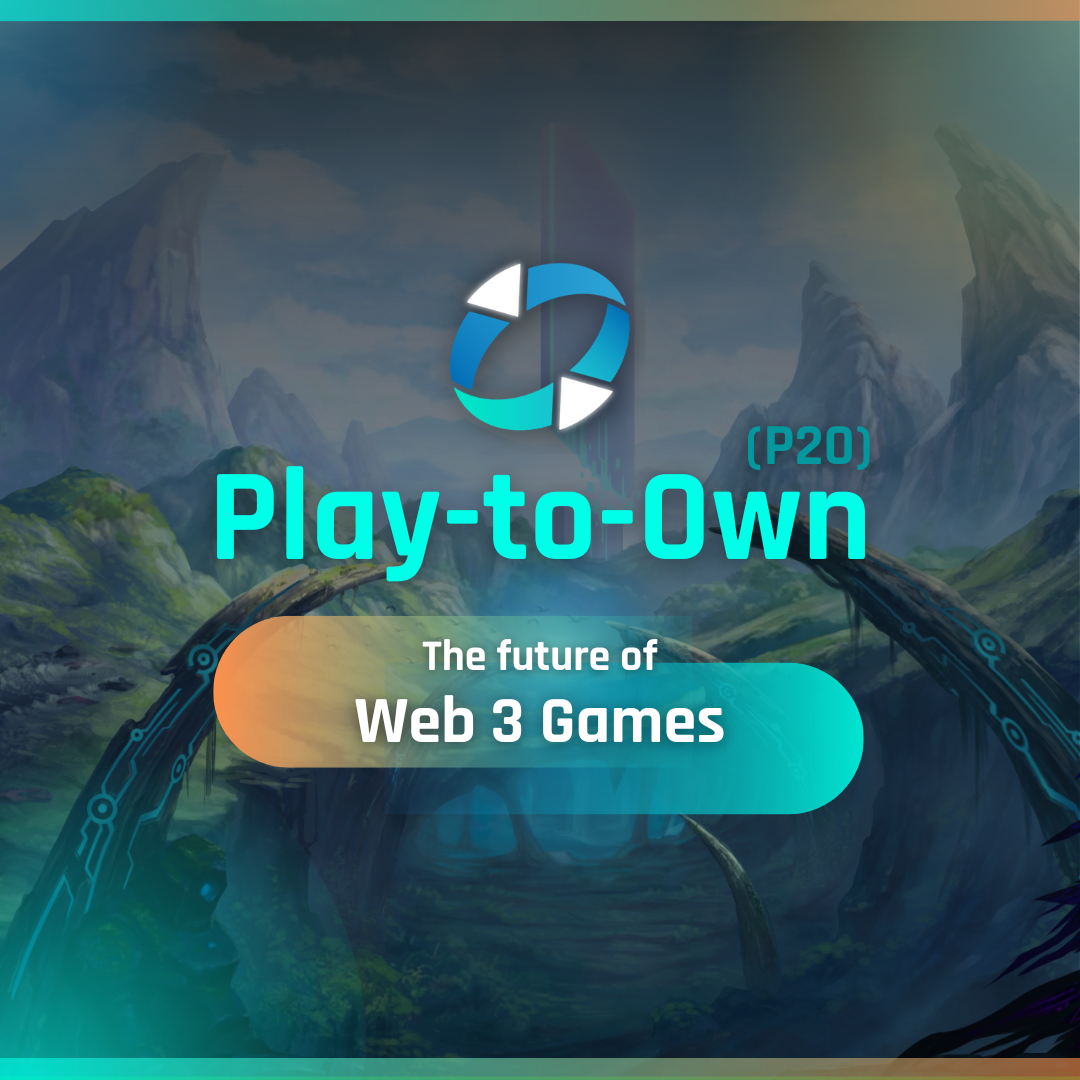
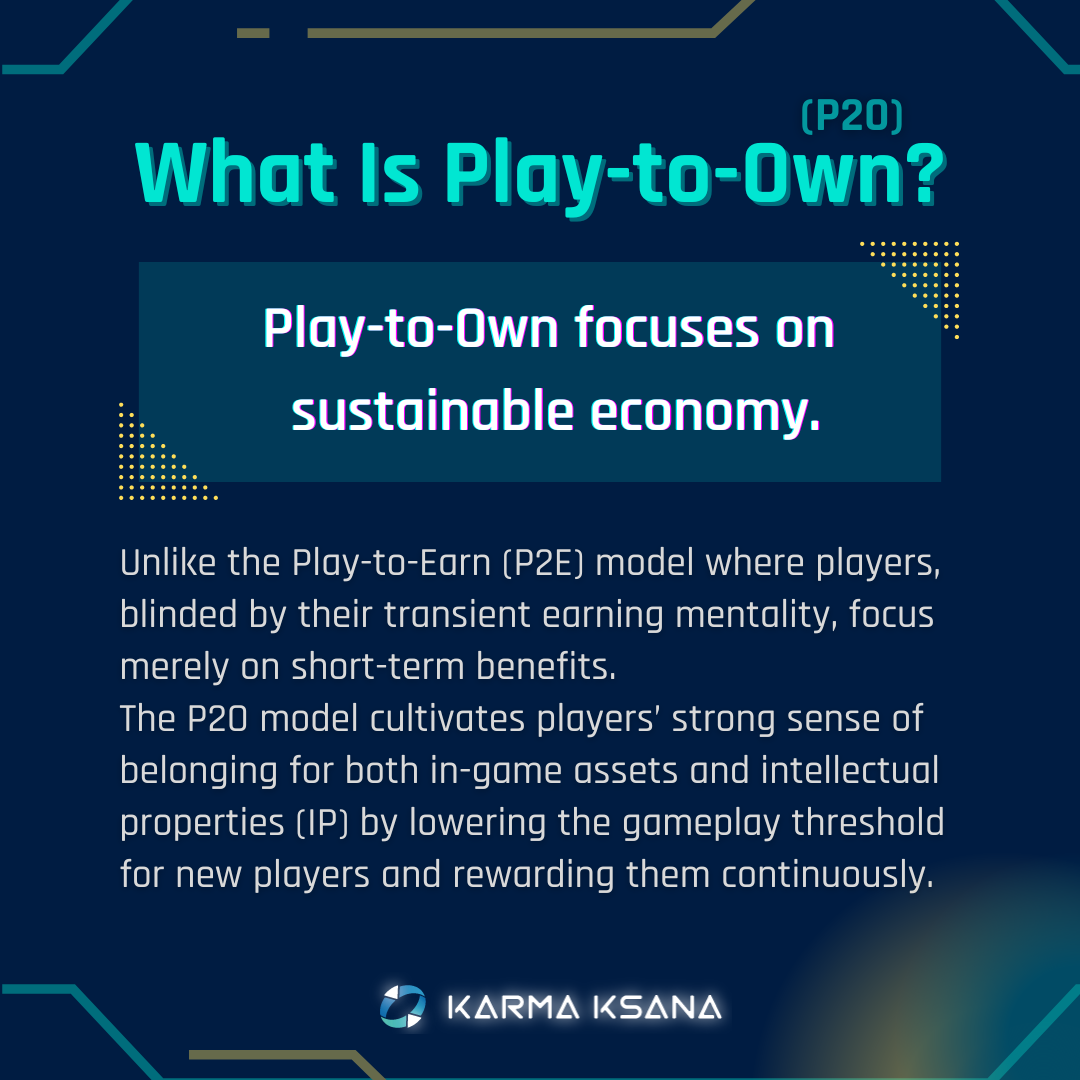
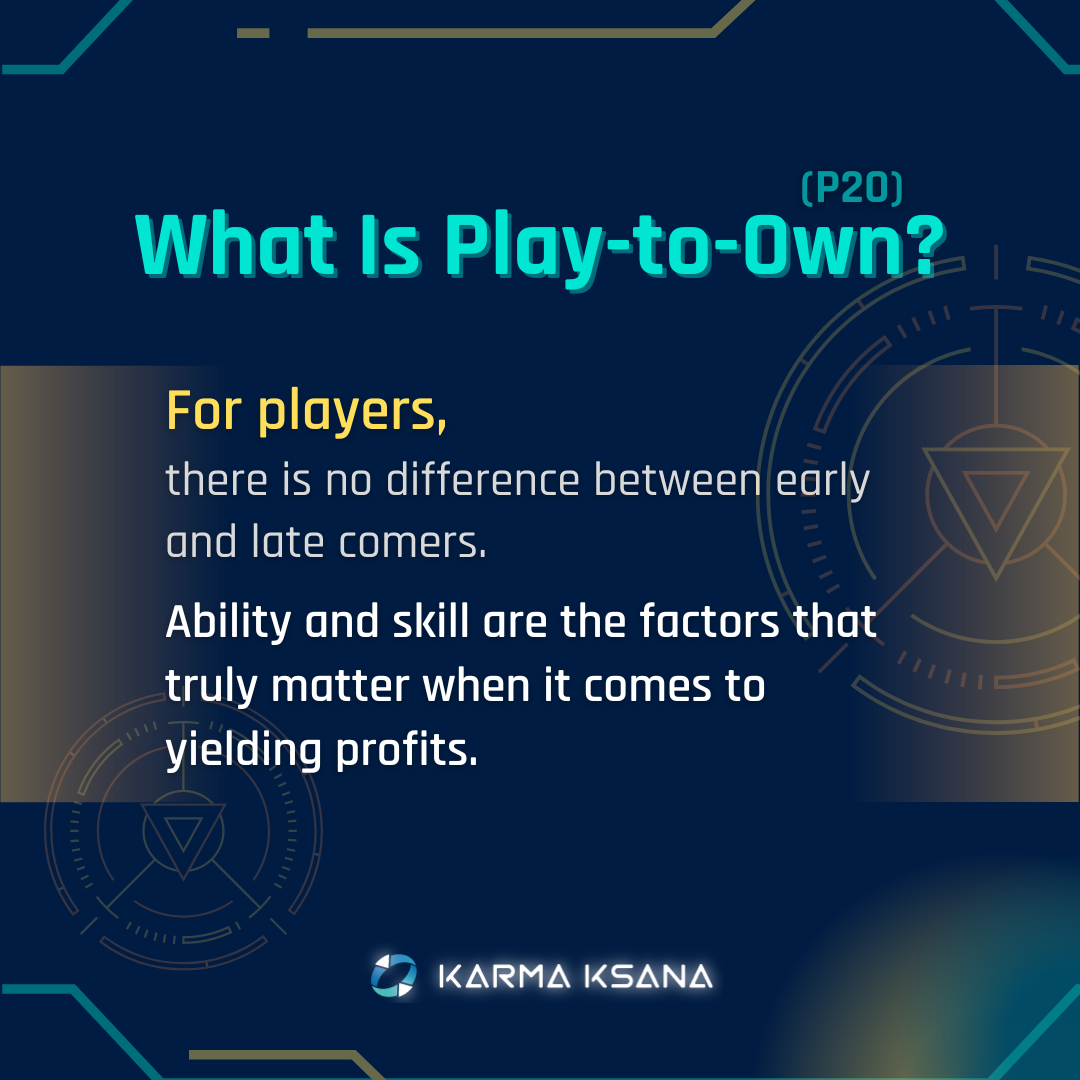
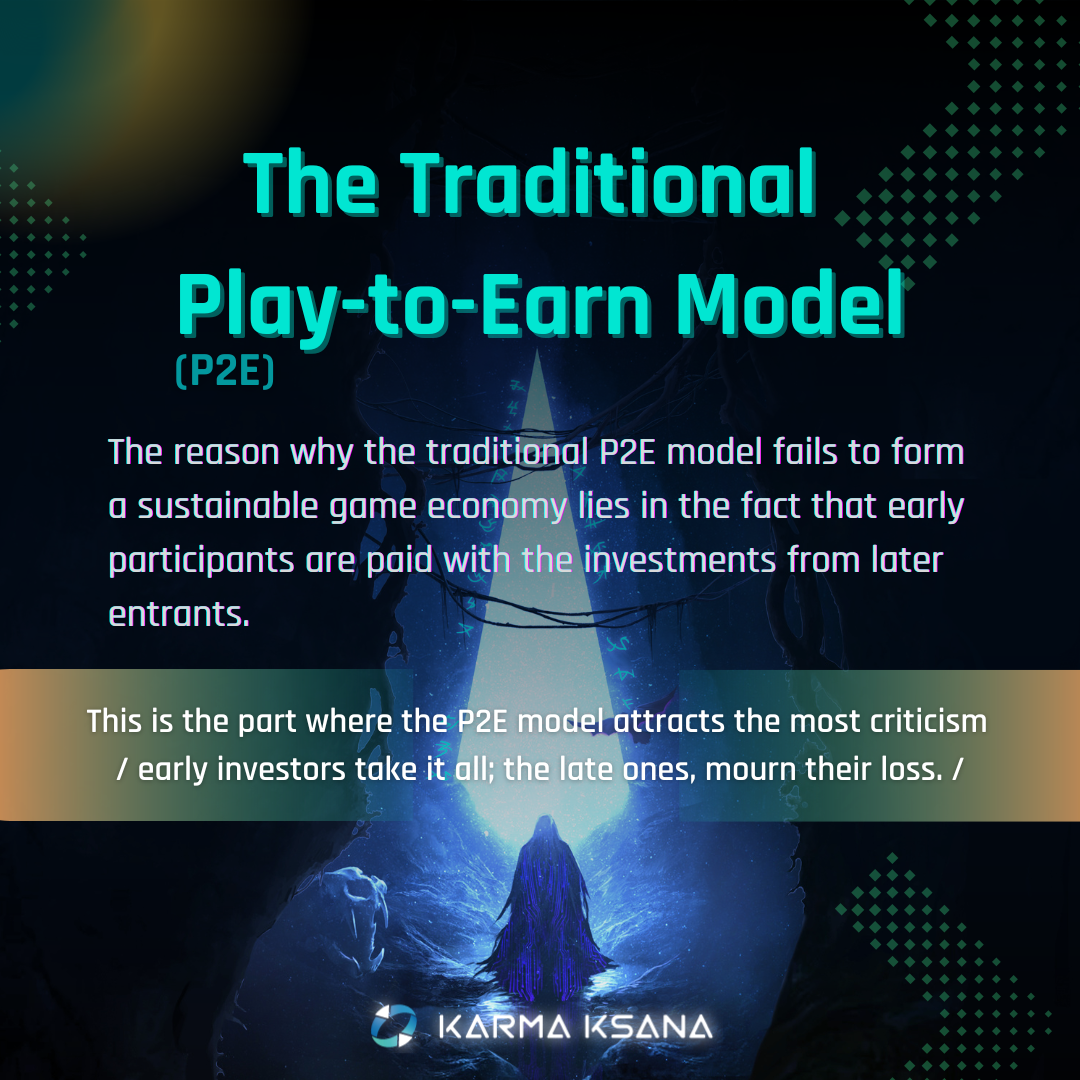
The future of Web 3 games: Play-to-Own (P2O)
What is Play-to-Own (P2O)?
Play-to-Own (P2O) focuses on sustainable economy. Unlike the Play-to-Earn (P2E) model where players, blinded by their transient earning mentality, focus merely on short-term benefits.
The P2O model cultivates players’ strong sense of belonging for both in-game assets and intellectual properties (IP) by lowering the gameplay threshold for new players and rewarding them continuously.
For players, there is no difference between early and late comers. Ability and skill are the factors that truly matter when it comes to yielding profits.
The traditional Play-to-Earn (P2E) model
The reason why the traditional P2E model fails to form a sustainable game economy lies in the fact that early participants are paid with the investments from later entrants. This is the part where the P2E model attracts the most criticism – early investors take it all; the late ones, mourn their loss.
The advantage of Play-to-Own (P2O) games
Play-to-Own (P2O) games don’t require high expenses in the initial stage like Play-to-Earn (P2E) games do. This advantage lowers the barrier and gives players free access to P2O games in a way that these rewards can then be reinvested back to the game in exchange for valuable in-game assets.
New players can also compete with high-level players by renting NFTs from the market without having to pour their money in the early stages of the game.
How to evaluate Web 3 games?
According to the co-founder of DeFianceCapital, ArthurOx, listed below are traits that make successful Web 3 games:
1. A healthy economy: limit opportunistic behavior, manage inflation accordingly
2. Intellectual Property (IP): allowing players to build games together
3. Game Democratization : represents community’s views, ensures that open source games are collectively censored by the community itself rather than a centralized authority
Karma Ksana, a company that pays equal attention to sustainable economy
Karma Ksana is centered on a decentralized community. Similar to the P2O model, Karma Ksana focuses on creating a sustainable game economy, significantly reducing the cost of entering games for its players.
The first game, Karma Genesis, sets its goal on modularizing in-game art, model and basic applications so that the value and profit of the game can be distributed more healthily. Gradually, with our internal resources, we will build Karma Space, a metaverse forum where people socialize and exchange information.
Karma Ksana’s purpose is “ to implement blockchain technology the right way.” We have the confidence to make long term contributions to blockchain development.
Join us https://discord.gg/karma-ksana & Do things right on chain!
#KarmaKsana #KarmaGenesis #blockchain #blockchaingame #BlockchainGaming #NFTs #NFT #NFTCommuinity #NFTGiveways #Crypto #cryptogames #cryptocurrency #DeFi #Gamefi #DAO #games #P2E #PlayToEarn #Web3Gaming #Web3 #gaming
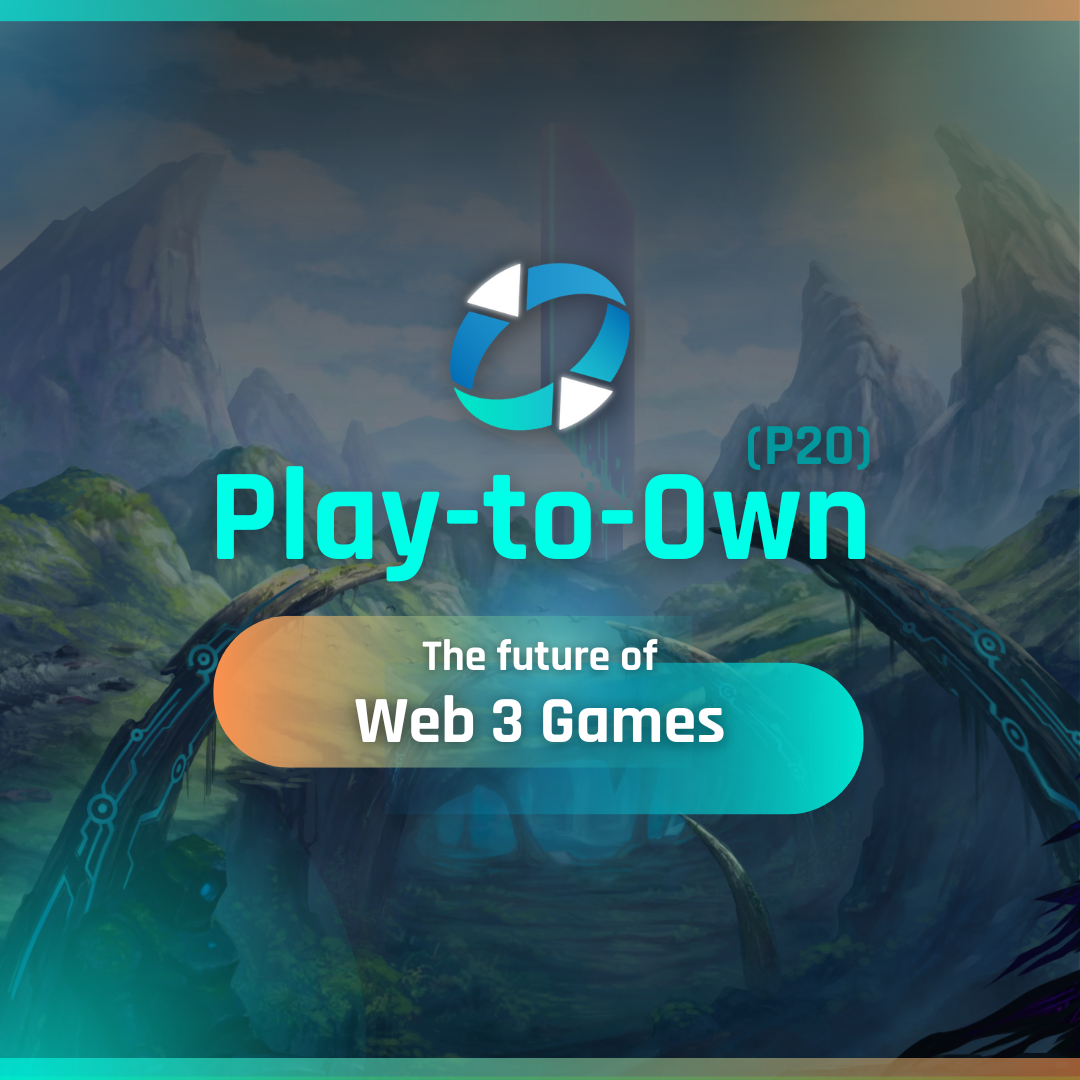
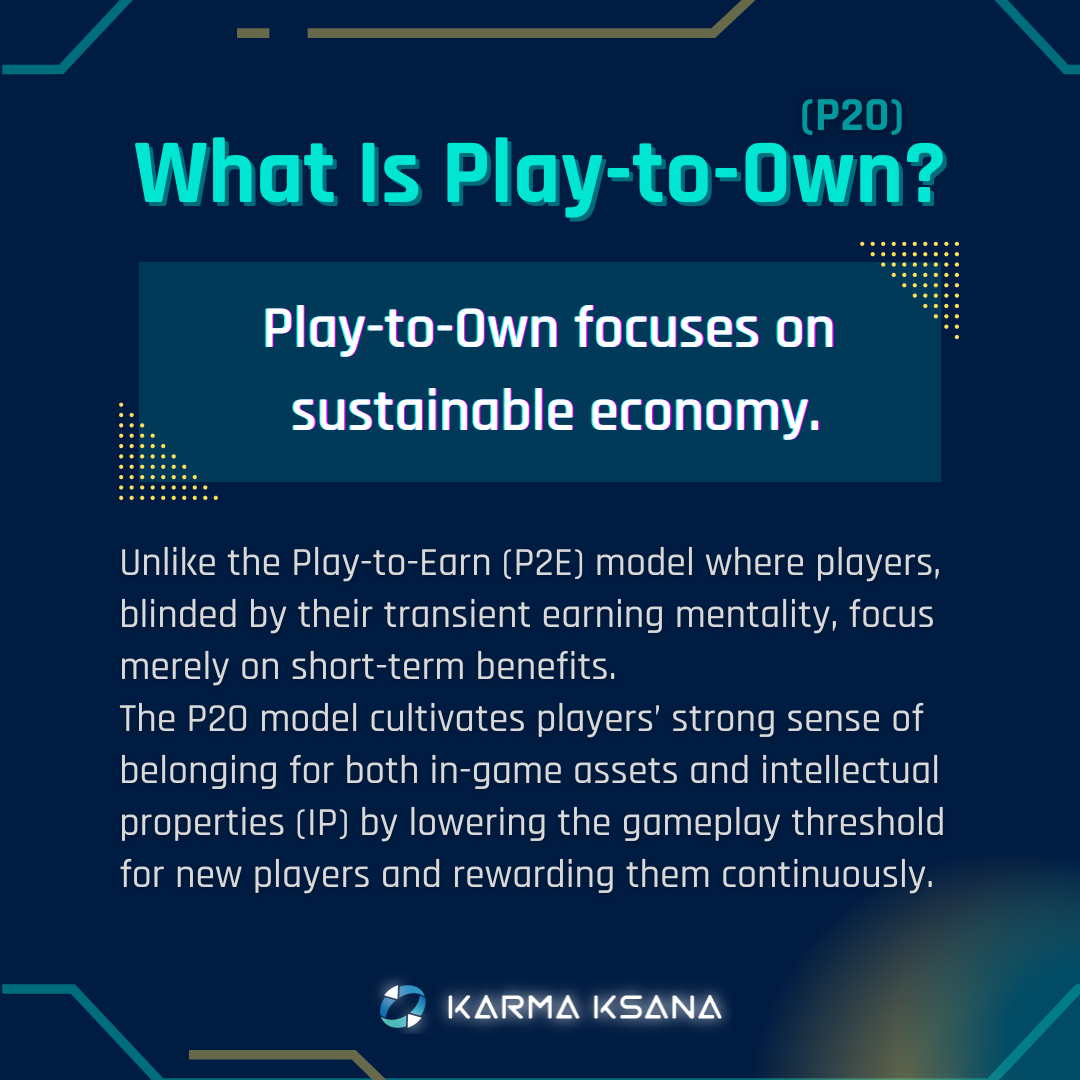
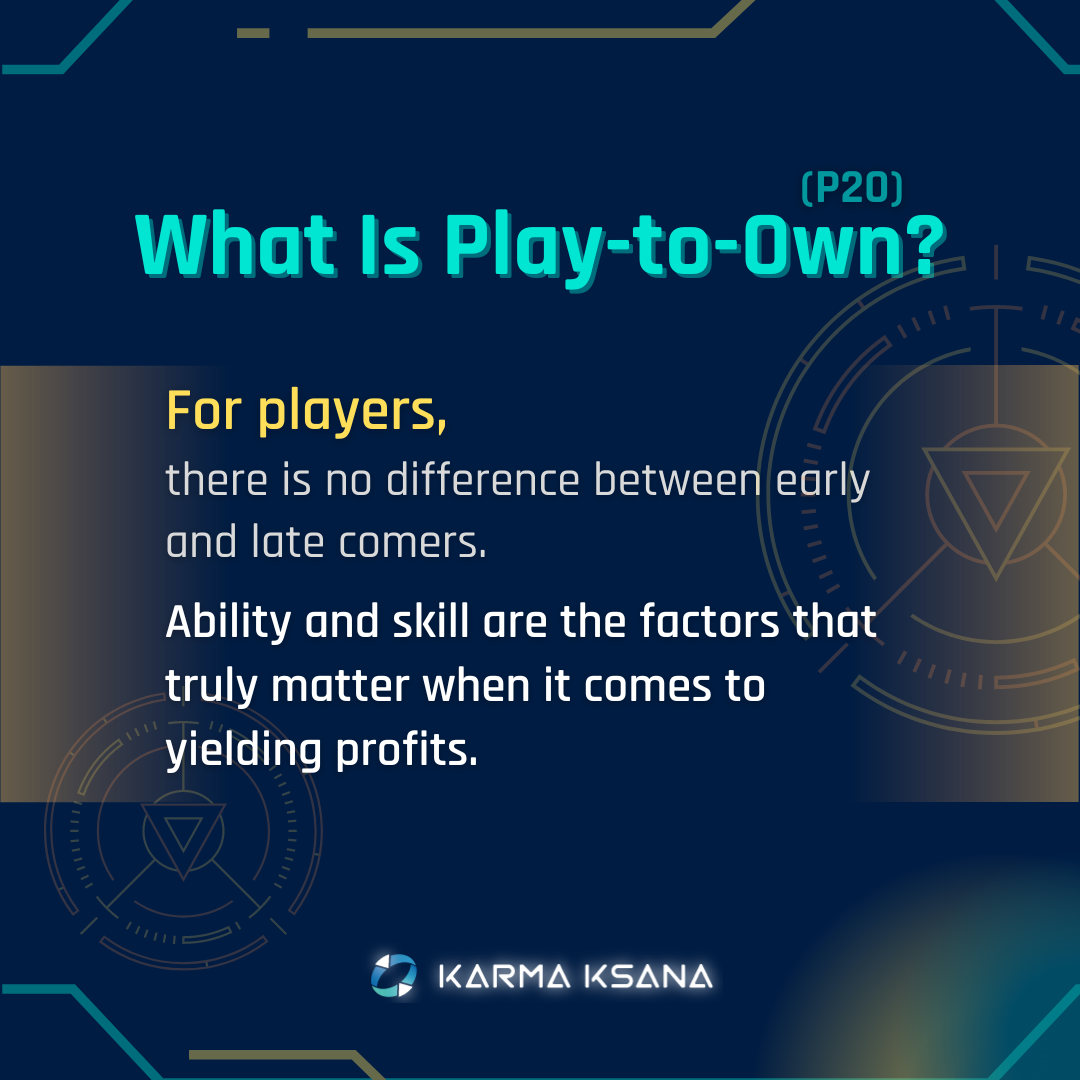
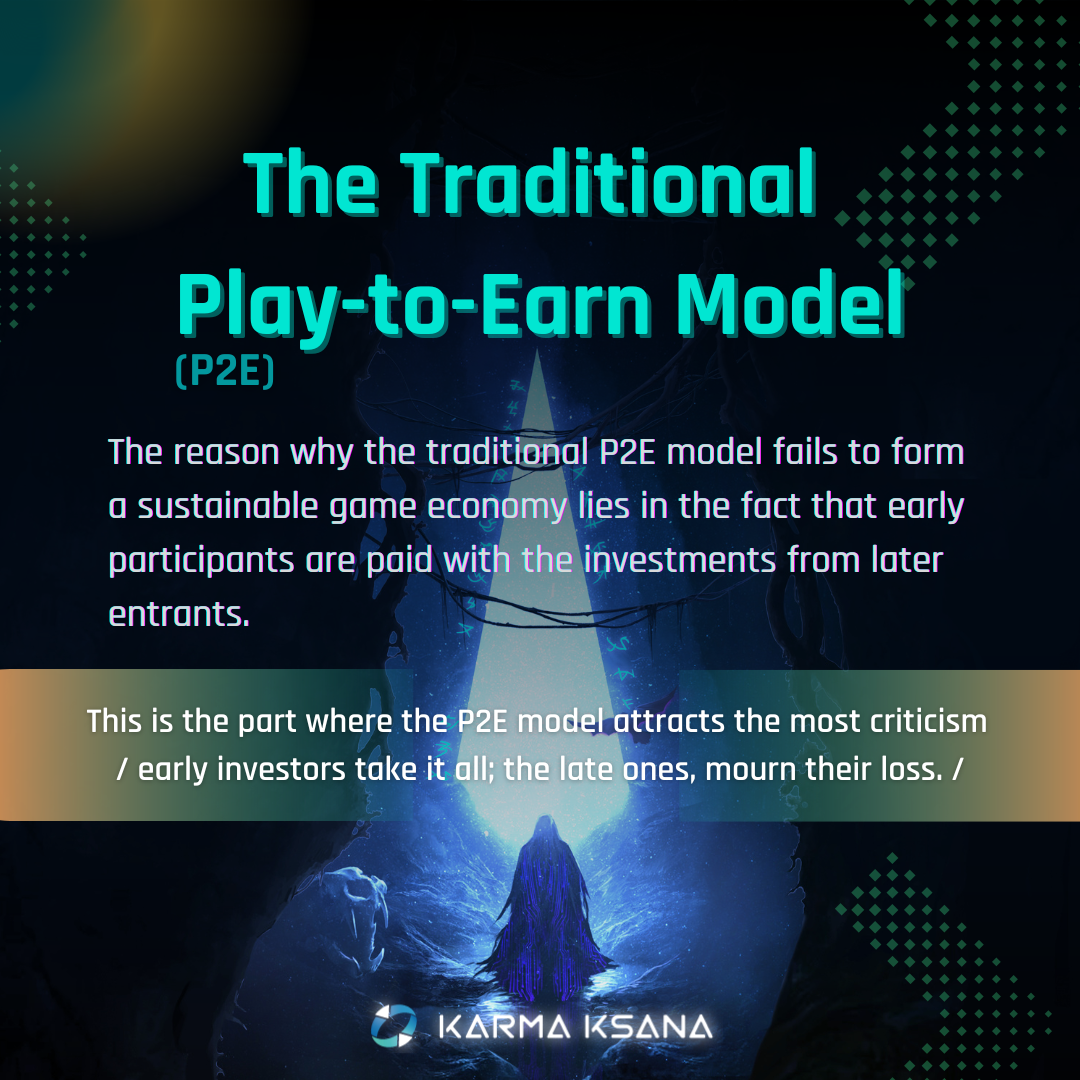
The top-up system is hurting the game industry !
The top-up system is a well-designed humanity trap. Few people can maintain their sanity in such a system, and it is hard to imagine how high the cost of addiction is. Although many game companies have made money with this system in recent years, it is like a gillnet that is hurting the entire game market and will eventually make players lose their passion for games.
Top-up games have a typical model:
First, those companies induce purchases with a low price and often intentionally use real time as a standard to make people feel that it is a good deal. For example, it only costs players $39 to get the same results or equipment that require three days of time investment in the game, which easily causes impulsive purchases.
Then, they make players keep investing money with the cumulative VIP consumption system. This system takes perfect advantage of how humans are unwilling to waste the money they have spent, encouraging players to keep paying. For example, after spending $39, players only need an extra $61 to get $100 and unlock some features. After unlocking the features with $100, they want to unlock the features of $200, $500, $1000, and even more. Players unconsciously invest too much in the game, and when they finally find out, they might have fallen too deep to leave, just like a boiled frog.
What these players get from this experience is definitely neither entertainment nor a sense of accomplishment, but consumption pressure and repetitive work. Even after they leave the game, they must go through a painful struggle since transferring the assets they have invested is not easy. This awful experience will continue, which is not a good development direction for the game ecology.
Another serious problem is that top-up games focus on high-speed iteration (short-term flow) and do not pay special attention to the survival time of the game (long-term operation). Hence, the problems of duplicated systems, old wine in a new bottle, and plagiarism are especially severe. They have led to a large number of similar games in the market, which is undoubtedly hurting the variety of gaming experiences and is likely to cause misunderstanding among light players and limit the game's look.
Therefore, when the market is flooded with these types of games, it will enter a vicious cycle where bad money drives out good, which is undoubtedly worrisome. We are apprehensive that the game market will become more and more sluggish. However, we believe that these problems can be solved very well with blockchain technology. For example, we can directly improve the situation of eliminated games by giving assets to players. We can also solve the top-up problem by limiting the number of game items with NFTs.
In fact, it is not the technology that stops the market from moving in the right direction, but the developers' unwillingness to give up quick profits. Karma Ksana thrives to create a new gaming paradigm that raises players' awareness of what an ideal development is like and exert pressure on game developers to contribute to the market transformation!
Written by 賴彤兒 , the co-founder at Karma Ksana.
Join us https://discord.gg/karma-ksana & do things right on chain!
#KarmaKsana #KarmaGenesis #Blockchain #blockchaindevelopment #blockchaintechnology #blockchaingame #NFT #NFTgame #crypto #cryptogame #cryptocurrency #DeFi #Gamefi #DAO #GameDevelopment #Gaming #game #web3
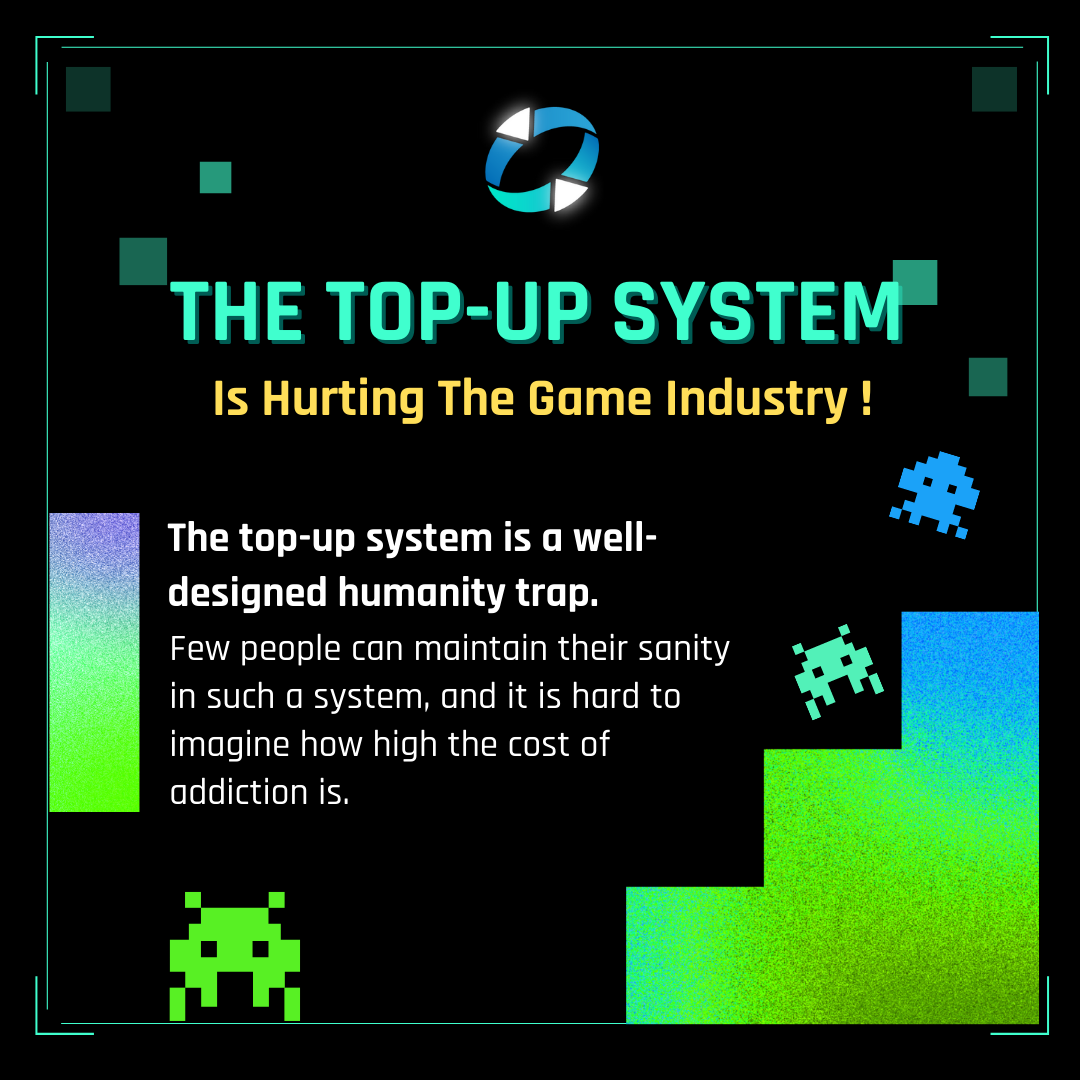
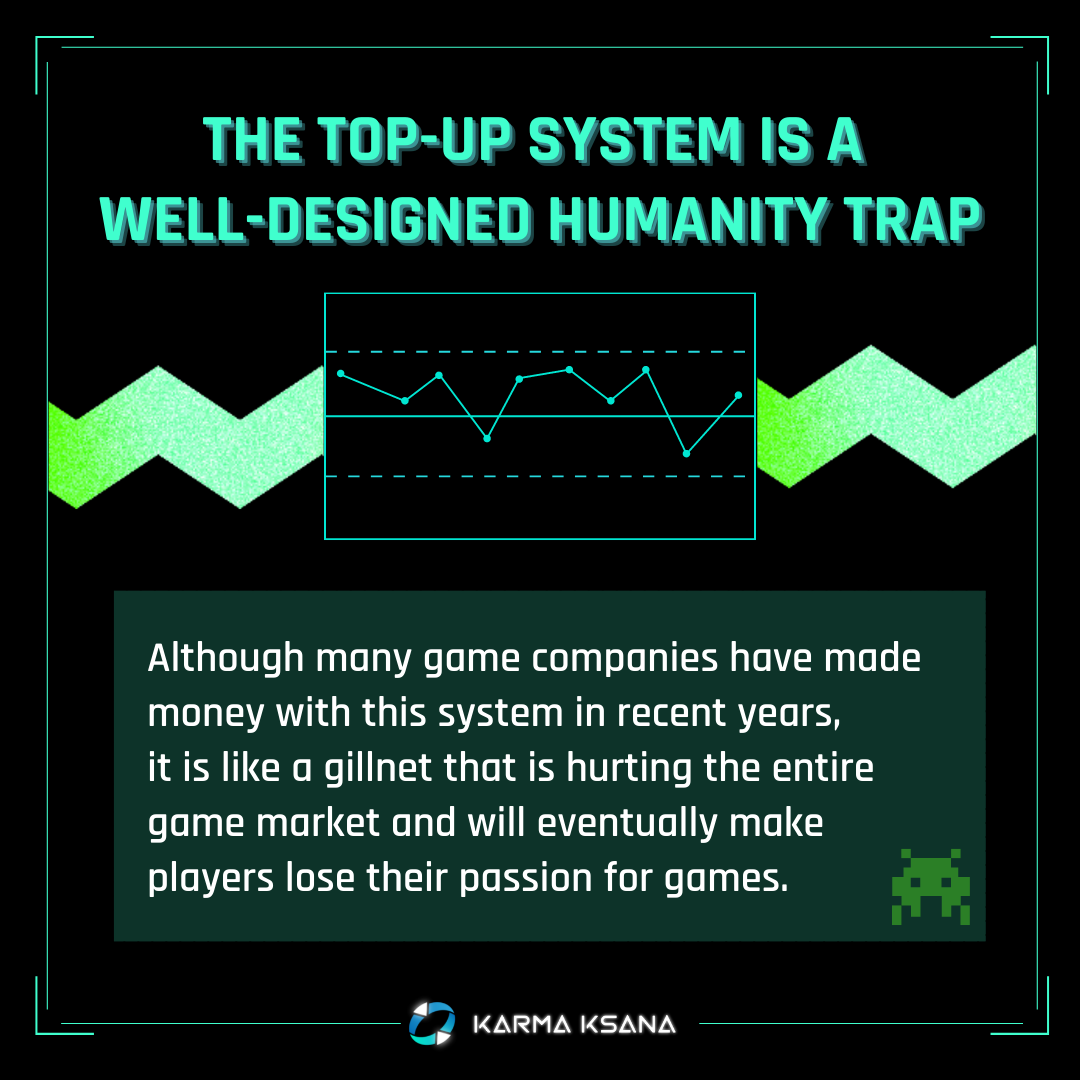
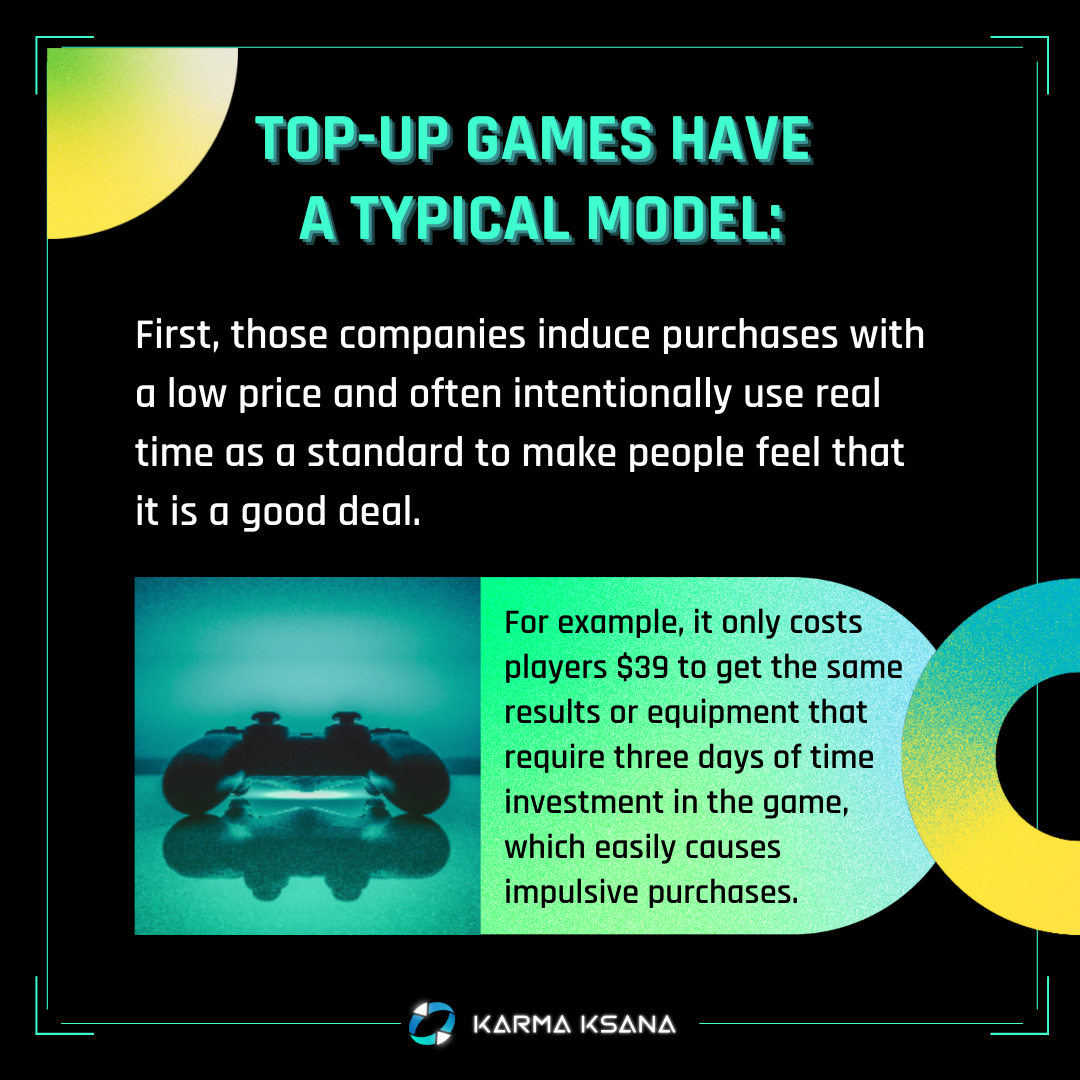
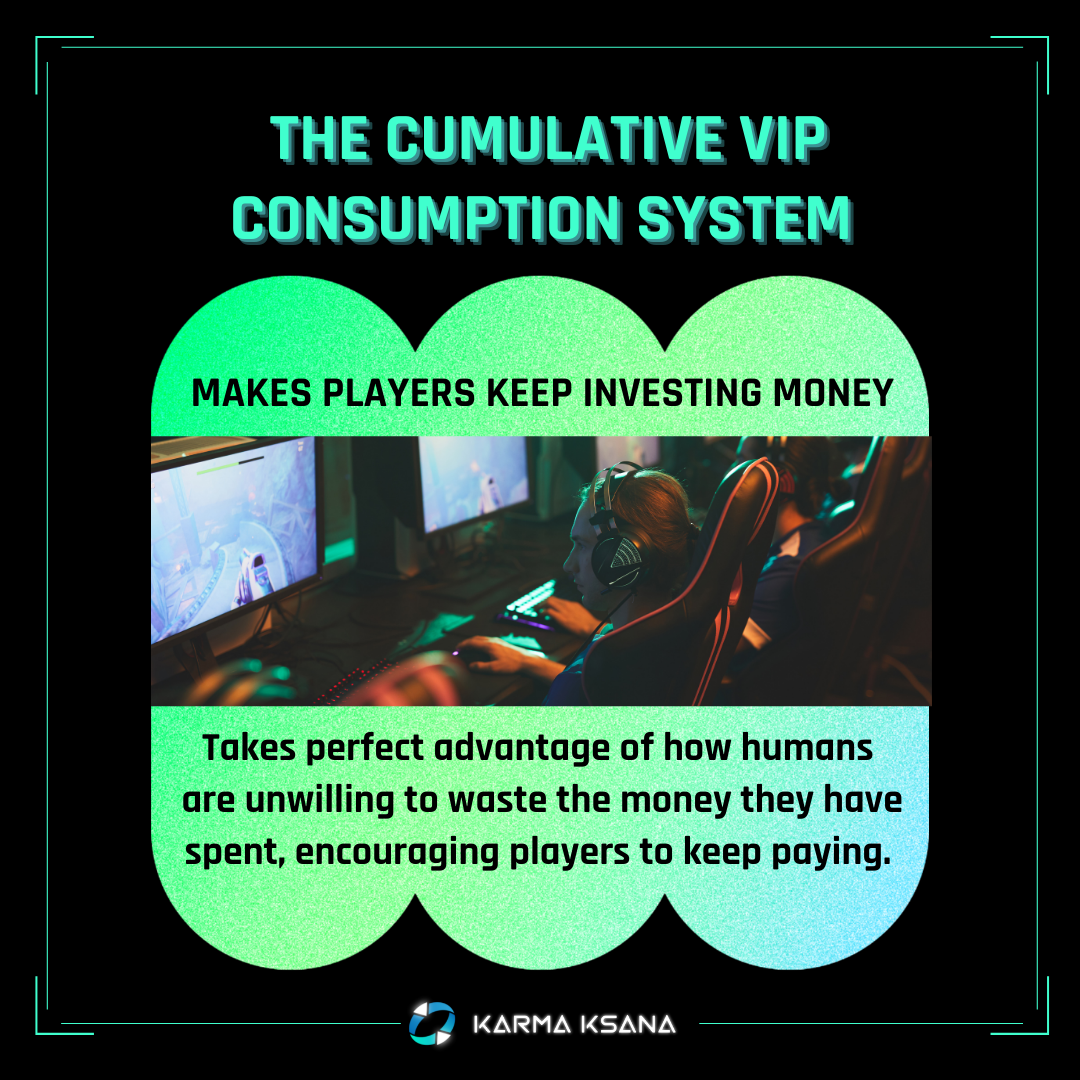
The top-up system is hurting the game industry !
The top-up system is a well-designed humanity trap. Few people can maintain their sanity in such a system, and it is hard to imagine how high the cost of addiction is. Although many game companies have made money with this system in recent years, it is like a gillnet that is hurting the entire game market and will eventually make players lose their passion for games.
Top-up games have a typical model:
First, those companies induce purchases with a low price and often intentionally use real time as a standard to make people feel that it is a good deal. For example, it only costs players $39 to get the same results or equipment that require three days of time investment in the game, which easily causes impulsive purchases.
Then, they make players keep investing money with the cumulative VIP consumption system. This system takes perfect advantage of how humans are unwilling to waste the money they have spent, encouraging players to keep paying. For example, after spending $39, players only need an extra $61 to get $100 and unlock some features. After unlocking the features with $100, they want to unlock the features of $200, $500, $1000, and even more. Players unconsciously invest too much in the game, and when they finally find out, they might have fallen too deep to leave, just like a boiled frog.
What these players get from this experience is definitely neither entertainment nor a sense of accomplishment, but consumption pressure and repetitive work. Even after they leave the game, they must go through a painful struggle since transferring the assets they have invested is not easy. This awful experience will continue, which is not a good development direction for the game ecology.
Another serious problem is that top-up games focus on high-speed iteration (short-term flow) and do not pay special attention to the survival time of the game (long-term operation). Hence, the problems of duplicated systems, old wine in a new bottle, and plagiarism are especially severe. They have led to a large number of similar games in the market, which is undoubtedly hurting the variety of gaming experiences and is likely to cause misunderstanding among light players and limit the game's look.
Therefore, when the market is flooded with these types of games, it will enter a vicious cycle where bad money drives out good, which is undoubtedly worrisome. We are apprehensive that the game market will become more and more sluggish. However, we believe that these problems can be solved very well with blockchain technology. For example, we can directly improve the situation of eliminated games by giving assets to players. We can also solve the top-up problem by limiting the number of game items with NFTs.
In fact, it is not the technology that stops the market from moving in the right direction, but the developers' unwillingness to give up quick profits. Karma Ksana thrives to create a new gaming paradigm that raises players' awareness of what an ideal development is like and exert pressure on game developers to contribute to the market transformation!
Join us https://discord.gg/karma-ksana & do things right on chain!
#KarmaKsana #KarmaGenesis #Blockchain #blockchaindevelopment #blockchaintechnology #blockchaingame #NFT #NFTgame #crypto #cryptogame #cryptocurrency #DeFi #Gamefi #DAO #GameDevelopment #Gaming #game #web3
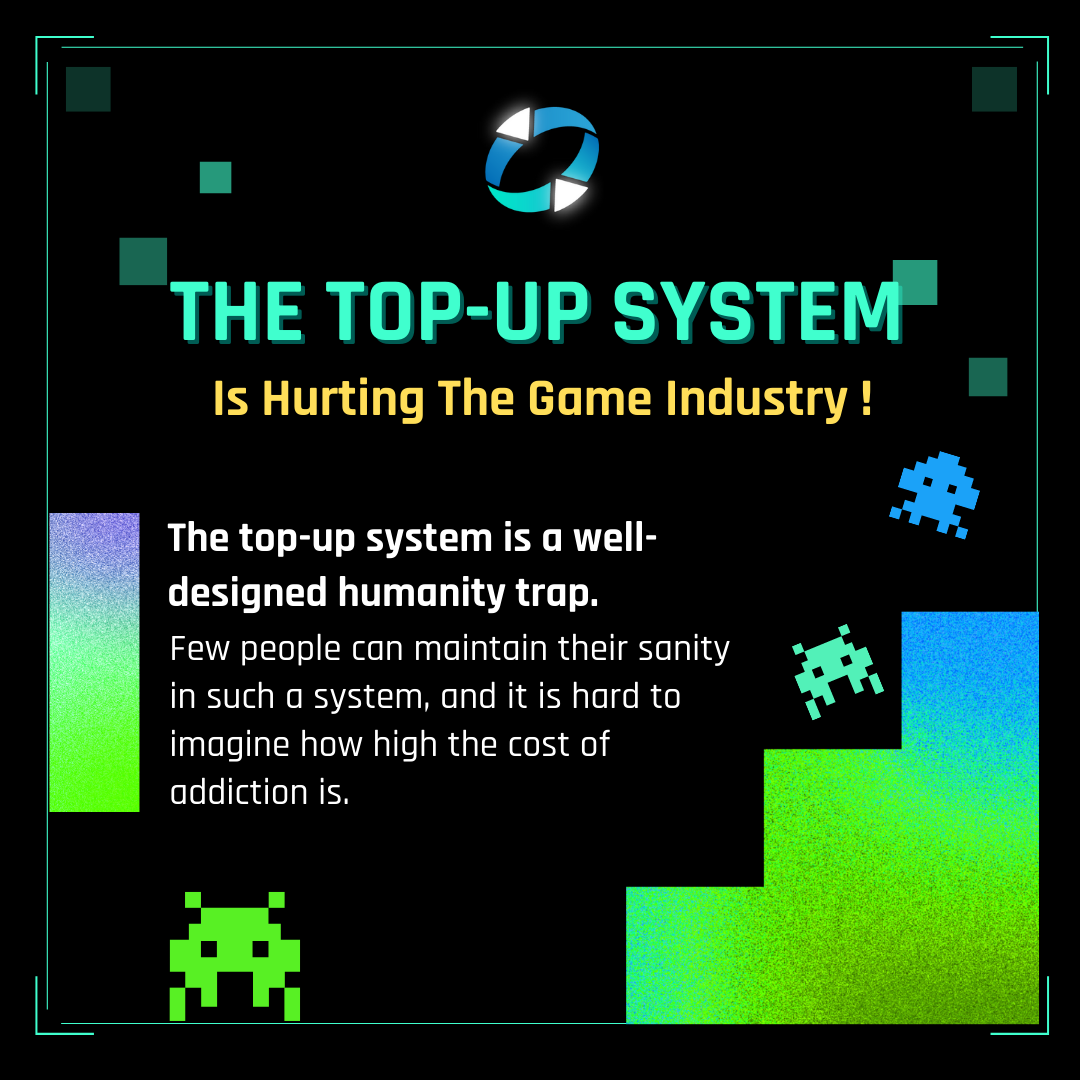
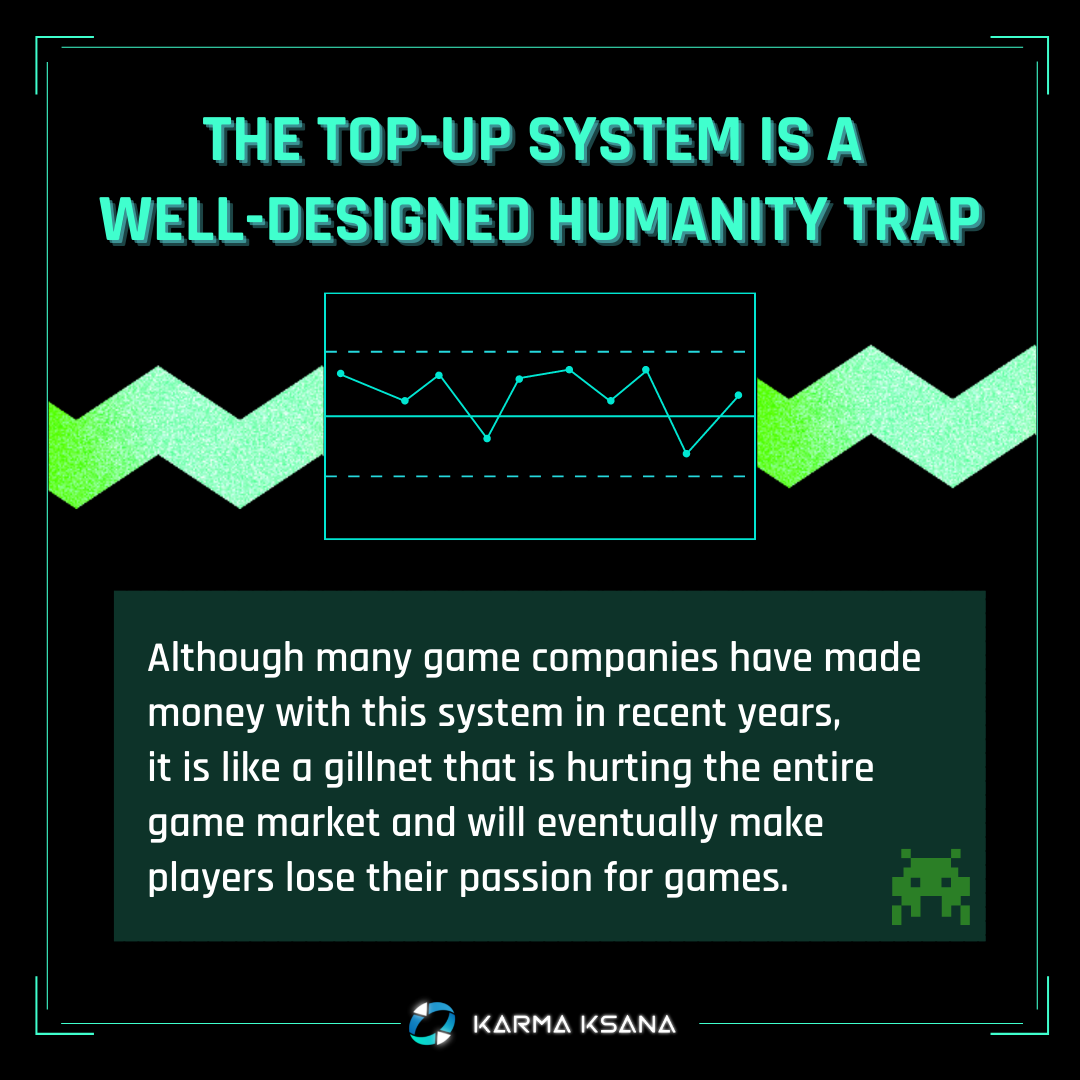
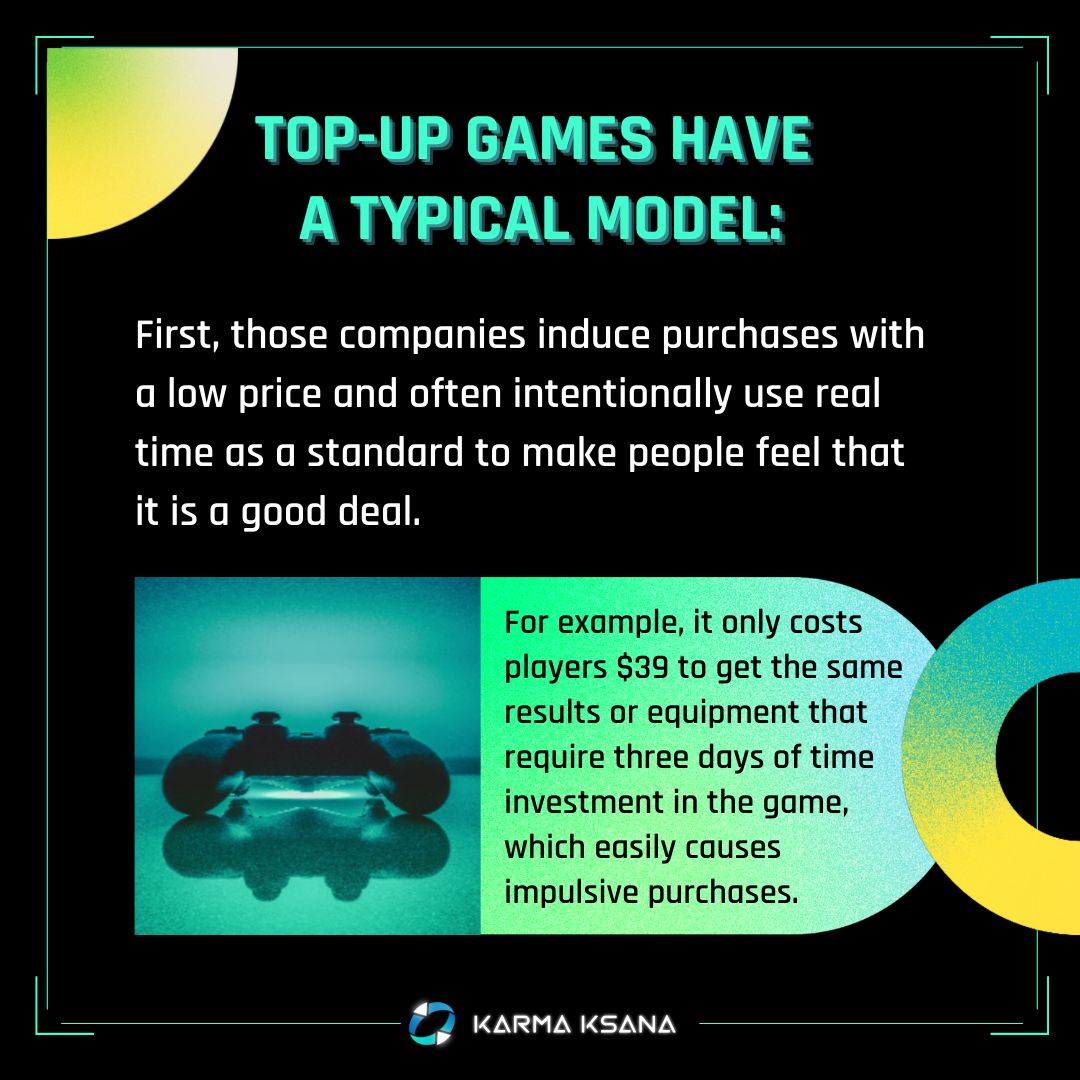
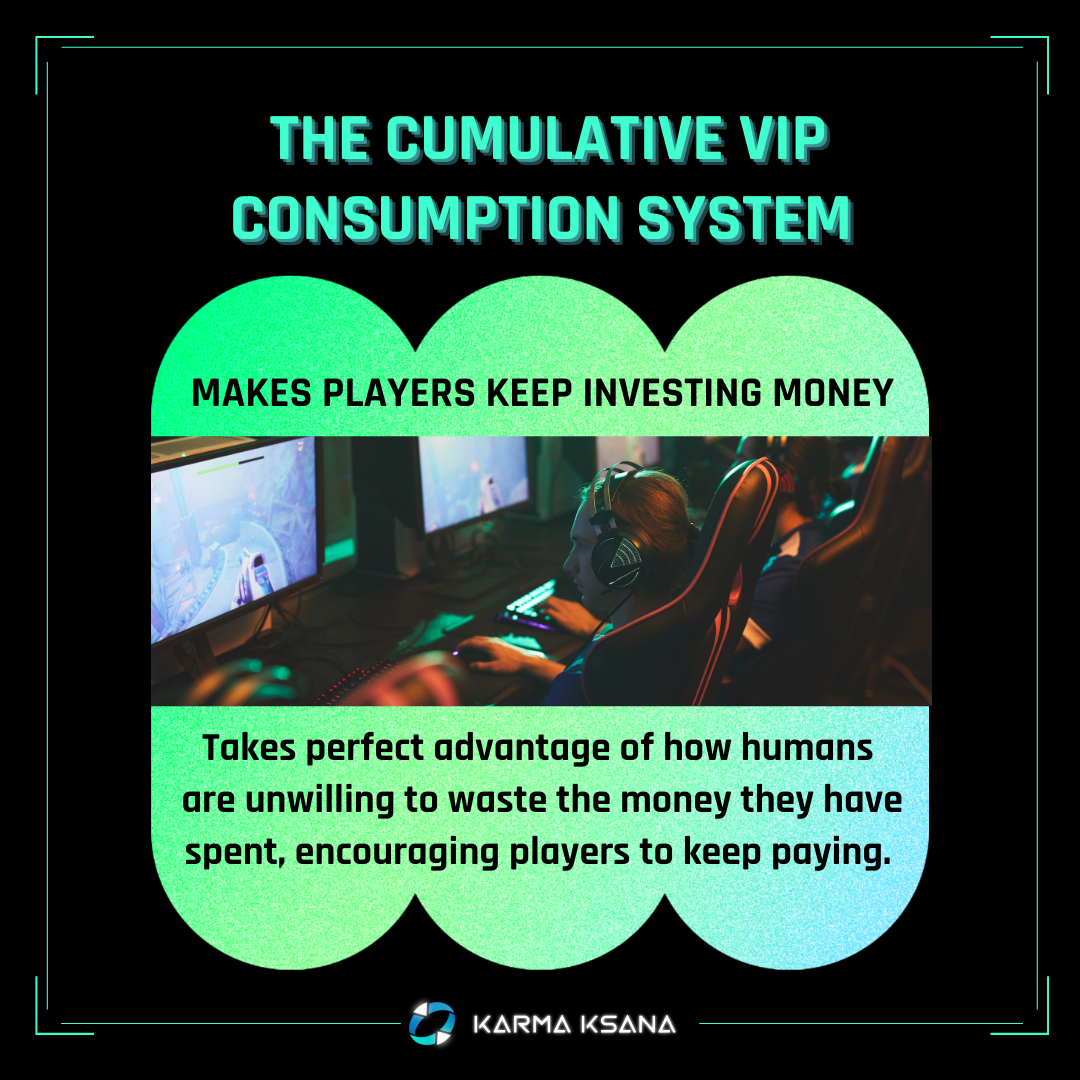
Democracy is a centralized decision-making process that abides by the majority rule.But decentralization is focuses on individuality, allowing each person’s value and thoughts to shine through.
There are three common decision-making approaches for brand image development on blockchain:
The team decides everything on its own, which is relatively dictatorial. The team discusses everything thoroughly with the community, and ultimately makes a decision by voting , which is relatively democratic. The right to use the brand image is handed over to all holders, which is the way of decentralization.
We also need to consider the reality. It is not easy to implement complete decentralization. Therefore, striking a balance between democracy and decentralization is an art.
In the next episode, we will then share with you what we think the solution is!


